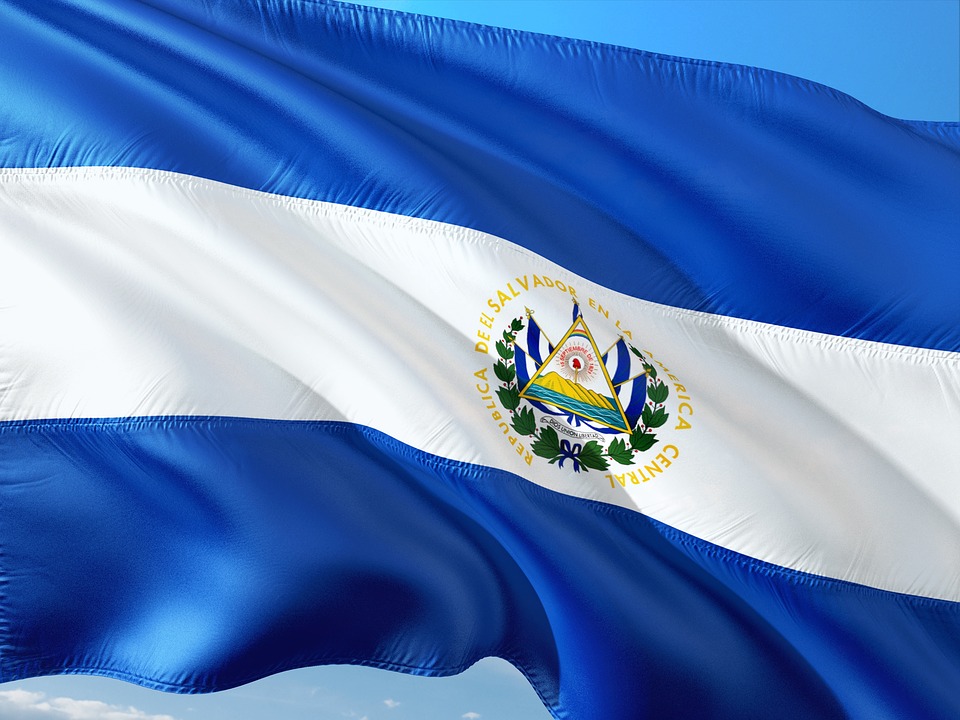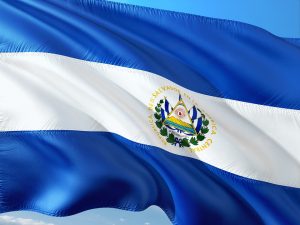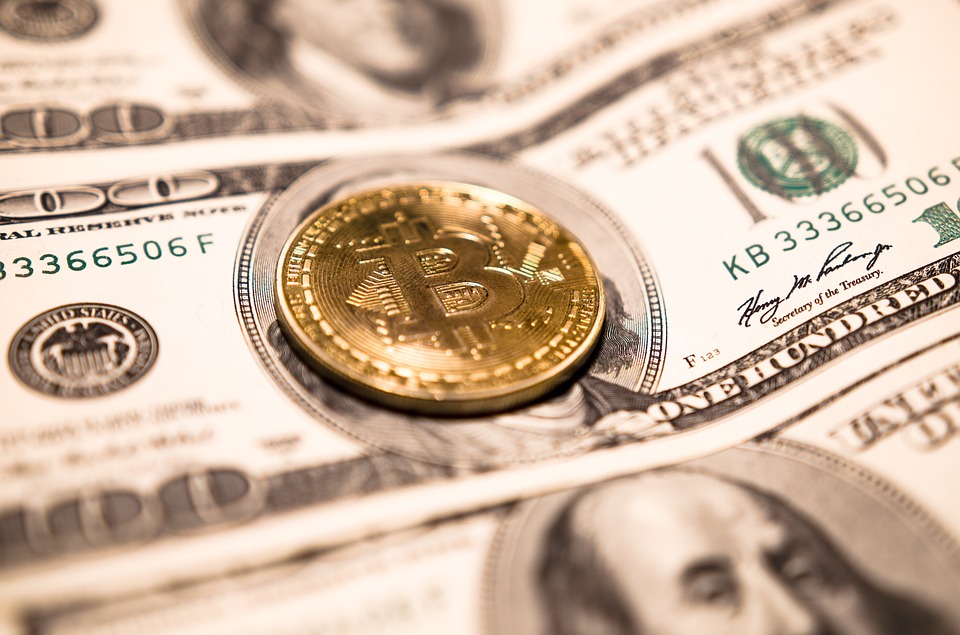Join Our Telegram channel to stay up to date on breaking news coverage
El Salvador was the first country in the world to introduce the digital currency Bitcoin as legal tender. Since last September, Salvadorans have been able to make transfers, use software like a Binance trading bot, and transact via the Bitcoin app. However, President Nayib Bukele is also concerned about foreign Bitcoin investors.
Mid-November in San Salvador, the capital of the Central American state of El Salvador: a stage bathed in twitching spotlights, fireworks behind it, an enthusiastic crowd in front. When a man dressed head to toe in white with a baseball cap turned backward enters the stage, spectators whip out their smartphones and take photos. Nayib Bukele looks like a pop star, but he is El Salvador’s president. El Presidente, the words appear behind him on a big screen.
“How’s the Bitcoin doing?” shouts Bukele in English. Then he asks, Do you like our country? And an enthusiastic yes resounds back from the audience. It is the closing event of an international Bitcoin conference at which El Salvador’s president is appearing, and part of the international crypto community is here celebrating him as a pioneer.
That’s because Nayib Bukele became the first head of government in the world to adopt Bitcoin as an official currency in 2021. However, the U.S. dollar continues to be used as a means of payment in El Salvador. Therefore, what are El Salvador’s daring plans with cryptocurrency?
Independence Not Just from the Dollar
The 40-year-old president is an entrepreneur by trade and has governed El Salvador since early 2019. Although Bukele has since drawn repeated criticism at home and abroad for an authoritarian style of government, polls show he enjoys approval ratings of more than 80%.
In June of 2021, the parliament, where Bukele’s Nuevas Ideas party has an absolute majority, passed the Bitcoin law – just three days after the announcement! Then, when the cryptocurrency was officially introduced in September, several thousand Salvadorans took to the streets against it.
Libertarian Ideology and Authoritarian State
Bitcoin is purely virtual, purely digital money. There are no Bitcoin bills or coins. Unlike state currencies, cryptocurrencies like Bitcoin, the oldest and most widely used currency of its kind, want to be decidedly independent of states and banks.
Many Bitcoin enthusiasts distrust central banks and believe that they indirectly promote demonetization or at least let it happen. To ensure that bookings are nevertheless verifiable without a central controlling authority, the data records behind the bookings are created decentrally on many computers; the proof of booking thus does not lie with the bank, but on many computers in the so-called blockchain.
Many in the so-called “crypto community” – people who own Bitcoin or do business with Bitcoin – are excited about the Bitcoin launch in El Salvador. However, some economists see this as a contradiction to the original idea of Bitcoin supporters, which was to escape any government influence.
In general, the very fact of becoming legal tender, that doesn’t actually get along at all with the ideology of Bitcoin, of evading these state regulations. Certainly not in this combination of Bitcoin and libertarian ideology with an authoritarian state, which, many fear, is clearly heading in the direction of dictatorship.
Tax-Free Bitcoin Haven
For even more investors, Bukule’s offer to settle in a planned special economic zone in El Salvador, the so-called Bitcoin City, at extremely low taxes is too tempting.
Bitcoin City is to be created with proceeds from government bonds that the state of El Salvador plans to issue to be able to borrow, in Bitcoin, not U.S. dollars. The city is to use geothermal energy from a volcano and collect no taxes other than a value-added tax.
Bitcoin has led to a few individuals around the world who are now multimillionaires, if not billionaires. That’s who you want to lure in. So if you also follow on social media what’s taking place there, in this Bitcoin City, they’re just luring these people with a lot of money, maybe to go on vacation there, but maybe even to invest there or even to live there.
Attractive for Criminal Activities
Bukele could play another advantage of his country in the process: The country gets a lot of its energy from geothermal energy or geothermal heat. This releases much less CO2 than coal or gas-fired power generation.
A lot of energy is used in the creation of Bitcoin because the currency is not “calculated” by the state, but by many computers in a decentralized network; they have to solve complicated computational tasks that are supposed to help ensure that Bitcoin cannot be counterfeited.
The owners of the computers are called “miners,” and the computational process is called “mining” or prospecting, analogous to the mining of gold. A lot of electricity is consumed in the process, which is why bitcoin is also controversial because of its currently poor carbon footprint.
However, if the electricity for this could be generated in El Salvador from the geothermal heat of a volcano, and if transactions with Bitcoin were also tax-free, this would be attractive for investors. The attraction: in El Salvador, those who have become rich with Bitcoin could finally buy real goods – something that is virtually impossible elsewhere because Bitcoin is so little accepted.
Going back to what experts think, they believe President Bukele is deliberately seeking a niche in the global financial market, and in doing so is at least approvingly accepting the idea of encouraging money laundering.
Still Little Confidence in the New Currency
Will Bitcoin become accepted as legal tender in El Salvador? The Universidad Centroamericana university surveyed Salvadorans last August. Nearly seven in ten responded that they had little or no confidence in the digital currency. But entrepreneur Omar Ortíz is among those who see Bitcoin as an opportunity:
“99% of the population owns a smartphone. If you show them how the Chivo Wallet app works, even a street vendor can collect Bitcoin. And those who don’t want to keep the Bitcoin can exchange it for dollars instantly through the app. For me, the big advantage of Bitcoin is that it doesn’t lose value – on the contrary, in the long run, Bitcoin has always increased in value.”
And those who don’t have a bank account in El Salvador:
“They just need an app now and they’re instantly connected to the global financial system and can participate no matter where they are.”
Crypto-Government Bonds Planned
In El Salvador, some even dream that their country could become a technological pioneer in Central America thanks to Bitcoin. The Bitcoin experiment is straining El Salvador’s relationship with international donors.
For example, negotiations with the International Monetary Fund on a loan worth billions of dollars have been delayed. Bukule’s government wants to finance the construction of Bitcoin City by selling government bonds in the cryptocurrency – worth one billion US dollars. Salvadoran economist César Villalona thinks that’s bold, given the country’s current financing problems:
“The government fails to get a 1.3 billion loan from the IMF and thinks it will be lent money for Bitcoin City! And this is at a moment when our country’s credit risk has risen and the price of Salvadoran government bonds has collapsed. If Bukele does manage to build Bitcoin City, it will be a big casino for a small group of millionaires. This has nothing to do with the population and is a waste of money. For a billion dollars, it would be better to build hospitals and schools.”
So is El Salvador on the wrong track? Many don’t think so. Investors say the model could well find imitators in other emerging markets.
The Example Could Set a Precedent
Countries such as Vietnam, India, and Pakistan are also toying with the idea of adopting Bitcoin as a currency; it is also popular in some African nations.
It is advisable to be cautious, however. Bitcoin, unlike gold, has no intrinsic value. Only an ascribed value, which a country also has little ability to influence. If the currency depreciates sharply, a state has no way to counteract it.
Only for countries with very unstable currencies could Bitcoin be attractive as a parallel currency. For them, even a Bitcoin that fluctuates strongly in value seems comparatively stable.
However, if Bitcoin were to lose a lot of value in the meantime, Salvadorans would get less for their money. If its value is stable, many believe that nothing will change – and the El Salvadorans might as well have stayed with the US dollar.
On the other hand, if Bitcoin rises sharply in price, as it often has in the past, many Salvadorans might be tempted to hoard their savings and not spend any money. In doing so, they would stall the economy in El Salvador.
Join Our Telegram channel to stay up to date on breaking news coverage





